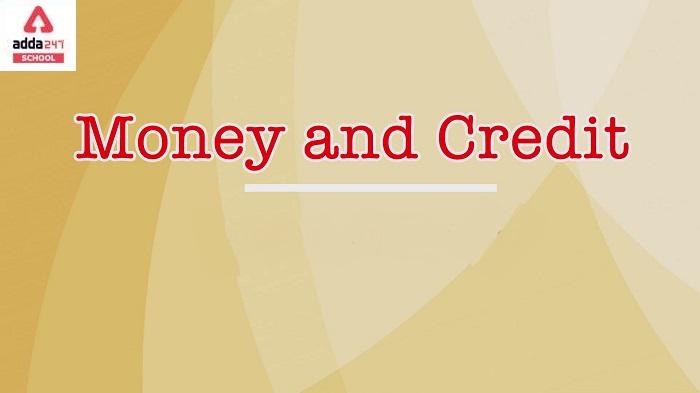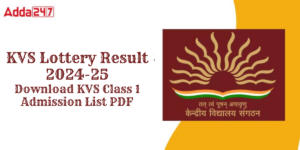Table of Contents
Money and Credit Class 10
Money
Money is a medium of exchange which helps the users to enter into transactions to buy goods and services from any business that exists in the market. Money, in particular, means the Currency we use in our everyday lives. It can be in the form of paper like currency notes and coins, like the one rupee coins and so on. In ancient times, gold coins and silver coins were used as Money, some also used food grains and livestock as Money. In the modern-day, we use currency notes and coins primarily as Money. Money is not limited to currency only, it also includes a variety of other things. A Fixed Deposit held in the Bank and any Post Office can also be termed Money. Even a cheque can be called Money as it is an instrument that directs the Bank to pay a certain sum to the person whose name has been mentioned on it.
Credit
Credit can be normally referred to as Loans or Borrowings. When goods are sold to one person, and it has been agreed between the parties that payment shall be made on a later date, then such goods are said to be supplied on Credit. If someone gives a loan to another person and charges a fixed rate of interest for it, then such an amount is also said to be Credit.
To put it in simple terms, when a Bank or Lender gives a certain amount of money, and the person who receives it agrees to pay it along with interest, then such an amount is referred to as Credit. It is a common business practice to sell goods on credit, and also the main function of Banks is to provide Loans (which is also called Credit).
Money and Credit Class 10 Notes
Functions of Money
Money has a wide variety of Functions. Below are some of the functions of Money:
- Money Acts as a Medium Of Exchange – Money is used as a medium to make payments for the services availed and goods purchased. Money acts as a measure of Value. The Value of the goods and services are expressed in Monetary Terms.
- Acts a Basis of Credit – Money helps in getting loans. Someone who needs Money urgently can take a loan or buy them on CreditCredit, which will then be paid after some time and also interest is also charged in monetary terms.
- Facilitates Import – A country may need to import goods from other countries, and for that, it must pay Money. Some Countries needed to import food for their citizens from other countries, so at that time, Money played a very important role in helping the country purchase goods from other countries.
- Determines Purchasing Power – The Value of Money does not deteriorate over time. Unlike Foodgrains, LiveStock money does not have an expiry date or does not depreciate in value. If someone saves apples from eating them after ten years, they would rot and not be fit for consumption in a few days. But in case of money is kept in a Bank Account, it would not lose its Value after twenty years. Also, the amount of money a person has determines how much he can spend. A person can even save money and use it to make any future payments, and the Value of Money will still remain the same, unlike the apples, which will get rotten after some days.
Functions of Credit
We had discussed the functions of Money earlier now. Let us discuss the functions of CreditCredit below :
- Credit aids in production – Normally, firms would not have a lot of cash to pay for the products and services they would need. Using CreditCredit as a loan from Banks, they can purchase machinery or plants, which would be useful in increasing production.
- Facilitates Exchange – Credit helps reduce Monetary Transactions, thus helping in making the transfer of funds easier and widely available.
- Facilitates Foreign Trade – Thanks to the Credit Instruments such as Bills of Exchange and Letters of Credit, buyers can make payments at the time of their choice.
- Better Allocation of Resources – By giving Credit, the surplus amount which would have been of no use is given to another person who might need it. Thus, the excess amount is transferred to another person who can make better use. Thus better utilization of resources takes place.
Modern Forms of Money
Some examples of Modern Day Money are given here :
- Currency– Currency in the form of Notes and Coins is the most widely circulated form of Currency nowadays
- Deposits with Banks – Deposits held with Banks like Term deposits, Fixed deposits, Recurring Deposits, and Savings Accounts are also forms of Money.
Formal Sector Credit in India
Formal Sector Loans: These can be availed from Banks and cooperative Societies. The Formal Sources of loans are governed by the Reserve Bank of India. Information has to be sent to RBI like the amount of loan, rate of interest and so on.
Informal Sector: Loans are given by Moneylenders, relatives, friends, and employers. These people can use unfair means and unethical practices to get their money back in case not paid.
Money and Credit Class 10 Notes PDF
Money and Credit PDF
Related Post:
- Difference Between Plant Cell And Animal Cell For Class 9
- ICSE Full Form
- Tribhuj Ka Kshetrafal (त्रिभुज का क्षेत्रफल)- Formula, Sutra
- Area Of A Triangle- Formula In Class 10 Co-Ordinate Geometry
- Chandragupta Maurya- Father Name, Wife, Son
- Home Minister Of India List From 1947 To 2022
- Trigonometric Table: Formula, Value, Chart, Ratio, PDF For Class 10
- 10 Omnivores Animals Name List And Examples
- 7 Continents And 5 Ocean Name List Of The World
- Job Application- Letter, Format For Class 12 With Biodata
Money and Credit Class 10 Notes PDF- FAQs
Q. What is called Collateral?
Collateral is something which Banks may ask to provide as a security for the loans. In case of the person defaults, Banks have the right to sell the Collateral and recover the Money.
Q.What is Money?
Money can be used as a medium to purchase goods and services. Money comes from Currency Notes, Coins, Deposits with Banks, etc.
Q. What are Self-Help Groups?
Self Help groups consist of a group of 15-20 persons who may be friends, relatives or neighbours. They save Money together, and if any one of them needs money, he/she can take it from there.
Q. What are the advantages of Self Help Groups?
Self Help Groups have many advantages. A list of some of the advantages is: Helps in reducing the burden of Collateral Security, Loans can be availed by people at a lesser rate of Intrest, and Women can become financially self-reliant, It is helpful in the Rural areas, especially which helps to develop the overall rural environment.


 CBSE Class 12 Result 2024 to be Released...
CBSE Class 12 Result 2024 to be Released...
 CBSE Class 10 Result 2024 To Be Declared...
CBSE Class 10 Result 2024 To Be Declared...
 KVS Lottery Result 2024 25, Kendriya Vid...
KVS Lottery Result 2024 25, Kendriya Vid...














